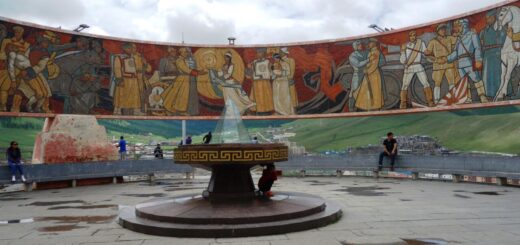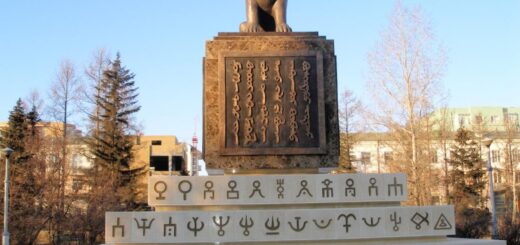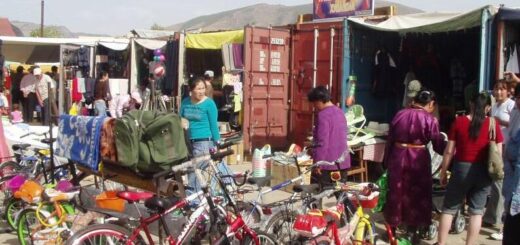Mongolia Domestic Politics
In Mongolia, after the non-violent transition to parliamentary democracy and a market economy in 1989/1990, a functioning multi-party system emerged in which, with the exception of 1996-2000, the only political party until 1990 – the Mongolian People’s Revolutionary Party (MRVP) was the most important political party Could claim strength. Since 2004, politicians from the Democratic Party (DP), founded in 2000, and the MRVP, which in November 2010 reassumed its original name Mongolian People’s Party (MVP), have alternated at the top of the government.
But confidence in the ability of the big parties to overcome crises and solve problems steadily declined.
Politically, the country is dominated by the MVP, the state president, the DP and a few large national companies.
Protest rallies and demonstrations of newly formed resistance movements challenged the rulers and testified to the growing strength and commitment of civil society.
Observers see the stalled economic development of the resource-rich country as the greatest challenge facing Mongolia. GDP growth fell from 12.3% (2012) to 1% (2016), not least because of the dependence on China and global raw material prices, while national debt and unemployment rose. In order to qualify for an IMF loan program, the MVP government had introduced austerity measures (tax increases, cuts in the social sector) – the outcome of the 2017 presidential election was also assessed as a rejection of this course.
The political crisis survived the turn of the year 2018/19.
At its meeting on January 5, 2019, the Leadership Council of the DP called for early elections to be called for the Grand State Assembly as soon as possible.
The ruling MVP is blocking both the work of parliament and the work of the government through its internal party disputes.
At a protest rally in Sukhbaatar Square on November 11, participants called for the state assembly to be dissolved “full of corrupt members”. The misuse of the fund for the promotion of small and medium-sized businesses, the question of offshore accounts or the 60 billion case are reasons enough.
On February 2, 2019, the autumn sessions of the Grand State Assembly ended, but Zandanshatar had not ruled out calling an extraordinary session before the spring sessions in April.
From March 18 to 27, the MPs debated changes and additions to the constitution, and they also passed amendments and additions to the tax laws, the laws on water, the state assembly, mining, investments, and the like Promotion of the private sector.
Just in time for the opening of the spring session of the Grand State Assembly on April 5, 2019, the opposition, led by the DP, organized a protest rally against government policy on Sukhbaatarplatz in Ulaanbaatar.
According to dentistrymyth, the demonstrators called for charges against all members of the State Assembly who illegally used cheap loans from the “Fund for the Support of Small and Medium-Sized Enterprises” Shanghai Cooperation Organization.
In the political barometer of the Sant Maral Foundation from May 2020, which was compiled with the support of the Mongolian office of the Konrad Adenauer Foundation (KAS), 33.8 percent named unemployment as a problem to be solved first, followed by the standard of living third place is health (Covid-19).
A majority of those questioned were of the opinion that the large mineral deposits Erdenet, Tavantolgoi and Oyutolgoi only insufficiently served the interests of the Mongols.
Because of the upcoming elections, the politicians’ ratings had to be dispensed with.
On December 20, 2019, the members of the Grand State Assembly passed the 2020 election law.
The elections for the Grand National Assembly in 2020 carried by a majority vote, but not in “small constituencies” (76 constituencies, each with a deputy or deputies, but in enlarged constituencies (29), in which several members are elected.
At the elections in 2016 were also allowed Mongolian citizens living and working abroad participate, which was no longer planned for 2020.
At their meeting on January 27, 2020, the members of the MVP parliamentary group decided to split Mongolia into 29 constituencies, nine for the capital and 20 for the aimags, for the upcoming elections.
The number of mandates in rural areas should be increased to 52 and in Ulaanbaatar it should be reduced to 24.
The DP group had objected to this. The distribution of mandates should not be determined solely on the basis of the area.
The number of people residing in the respective constituency should be given more consideration; almost half of the population lived in Ulaanbaatar.
Nonetheless, the MVP majority had their ideas put through on January 31: 52 seats for the aimags, 24 for Ulaanbaatar.
The number of MPs remained unchanged at 76 for 2020.
On January 31, 2020, the State Assembly finally set June 24, 2020 as the date for the elections and the local elections on June 15, 2020. October 2020 decided.
Because of the corona crisis and the enormous challenges the country is also facing economically, President Kh.Battulga had proposed postponing the 2020 elections to the Grand State Assembly.
Prime Minister U. Khurelsukh saw no need for this.
The elections to the Grand State Assembly took place on June 24, 2020 as planned.



